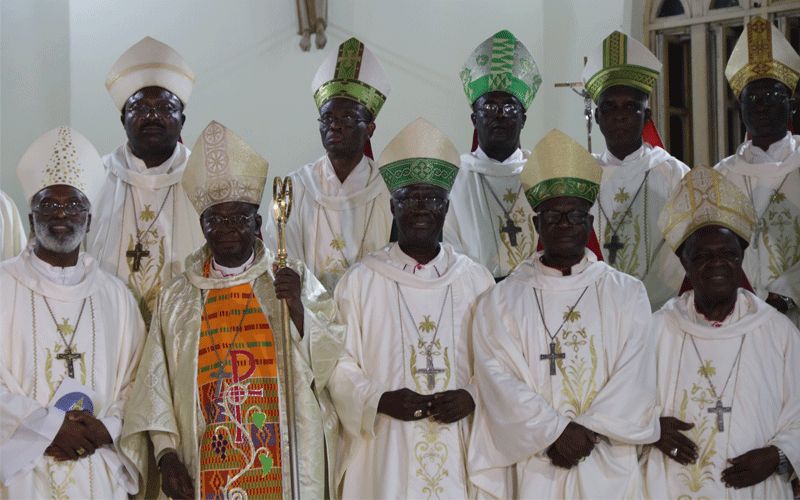Following the announcement, Bishops in Ghana announced the resumption of public Mass in their respective jurisdictions under strict safety guidelines, giving separate dates for inaugural liturgical gatherings.
In their collective statement issued under the title, “Further Directives and Guidelines for Liturgical Celebrations,” Prelates in Ghana state, “We are in the season of Diaconate/Priestly Ordinations and depending on the limitations that may come from the President of the Nation on religious gatherings, it will be important we prepare for them.”
“It is important we observe and respect all the protocols in place. As far as our liturgical rites for such celebrations are concerned, we may not be able to compromise on some of them,” the Catholic Church leaders in Ghana say.
In their message, the Bishops direct that concelebrants “vest and be seated in their places (respecting social distancing) while the entrance procession is limited to the principal celebrant and the candidates with limited number of knights of the altar (cross-bearer, acolytes, Book of the Gospels, bearers of the bishop’s mitre and crosier).”
Focusing on the ordination of Priests, the Bishops direct that “the imposition of hands by the principal celebrant and the concelebrants must not be omitted (only it should not be elaborate). As a requirement, anointing of the palm of the candidates cannot be omitted. The presentation of the Chalice, the paten and the Book of the Gospels must be done. They are to be sanitized after that.”
The Prelates also recommend that “the gesture of welcoming the newly ordained into the Presbyterium by both the Bishop and other concelebrants be omitted.”
According to the Bishops, these recommendations can be applied to the “Renewal of Vows, Profession of Final Vows, Jubilees and amongst others.”
Regarding the Sacrament of Baptism, the members of GCBC note that this sacrament “may once again be administered when further restrictions have been relaxed taking into account the number of individuals permitted to gather while observing the required social distancing.”
However, they direct that baptism “be celebrated if those to be baptized do not exceed a maximum number of 10 candidates, each accompanied by both parents and one sponsor only; anointing should be carried out using cotton wool; a fresh cotton wool should be used to anoint each candidate; the priests sanitizes his hands immediately afterwards.”
On Sacrament of Reconciliation, the Bishops direct, “Given the Church’s norms for confession, the priest must be physically present to the penitent in person, and must be able to hear the penitent without the aid of electronic devices (that is, independently of a wired phone, a mobile phone, an intercom, or other audio or video transmitting device).”








